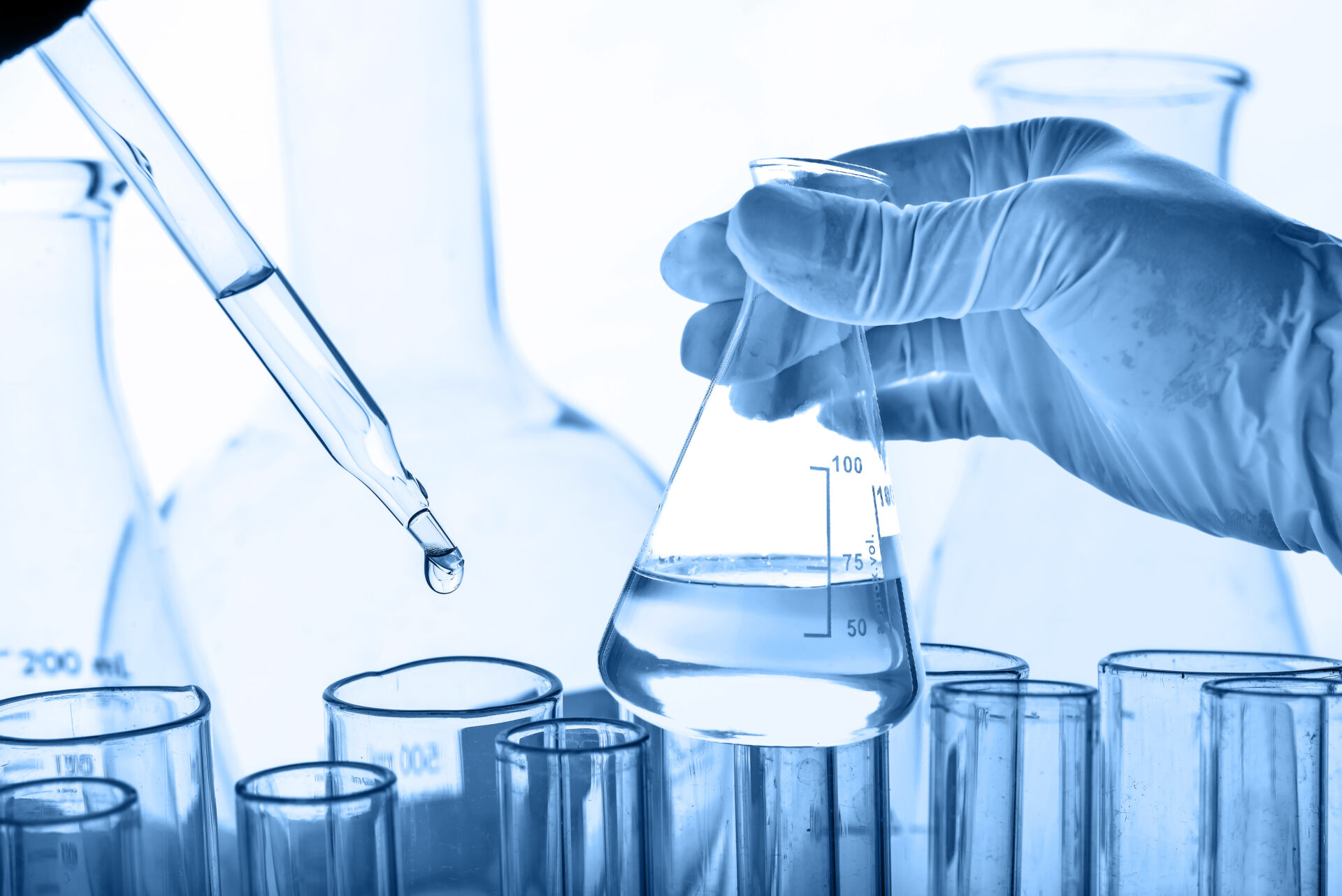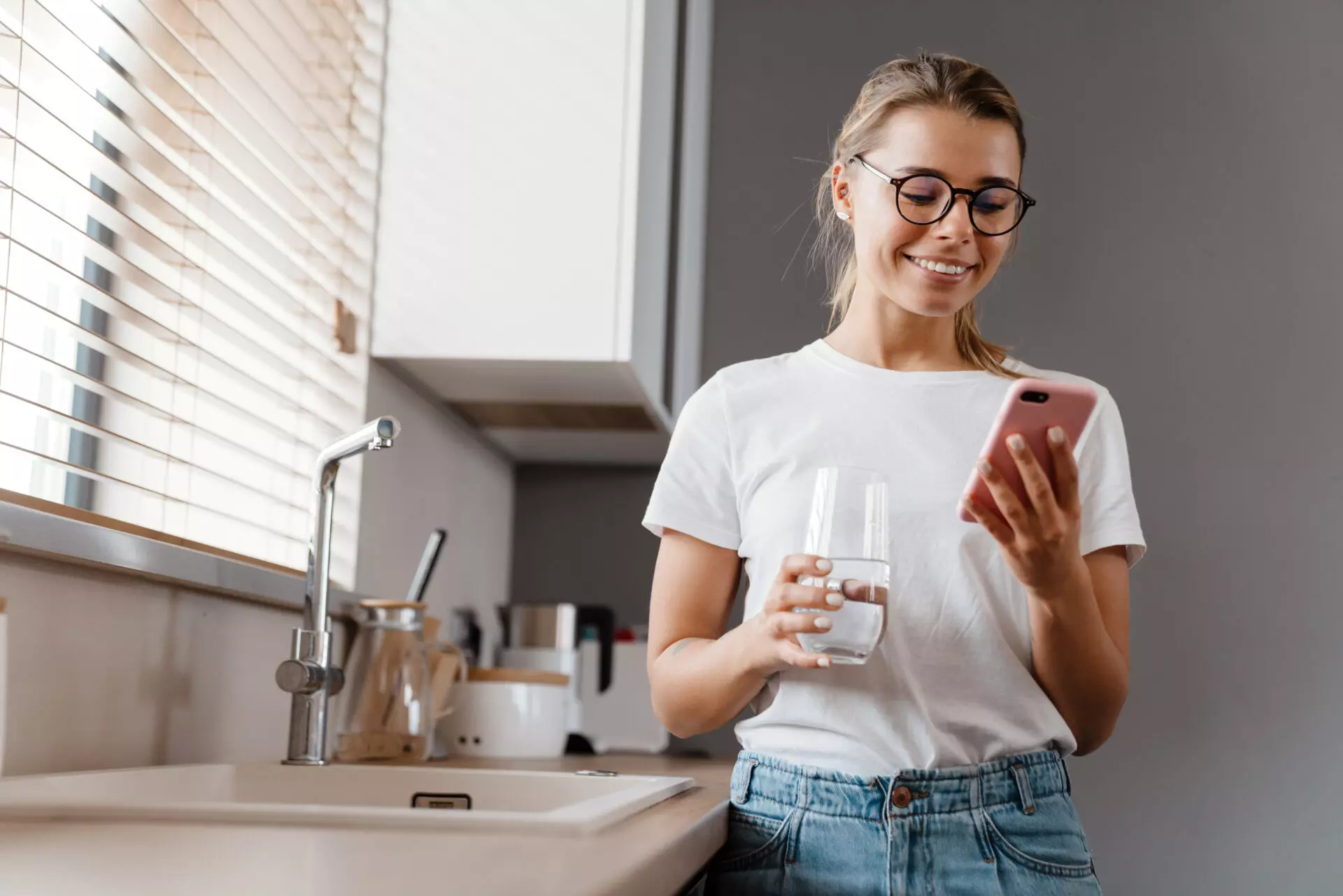Taking your first shower or bath with softened water will feel different than a shower or bath with hard water. That’s because soft water creates a silky sensation on your skin. One that’s often described as “slippery”.
Soft water is a welcome upgrade but there are a few things you may need to adjust from your day-to-day life if you are only used to having hard water in your home.
Effects of bathing with hard water
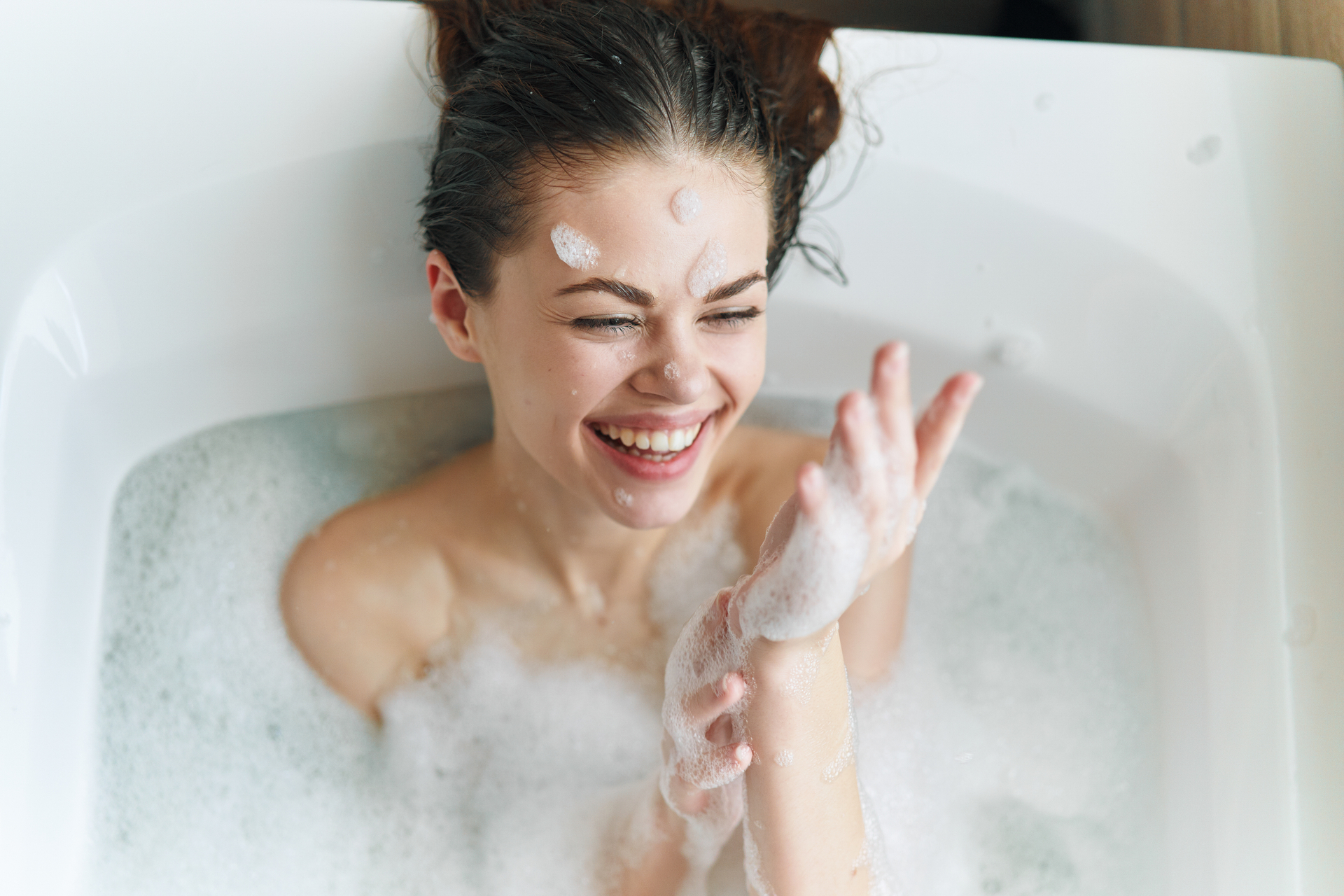
Hard water is commonly known as water rich of excessive amounts of dissolved minerals, such as calcium and magnesium. Bathing with hard water tends to feel “heavier” on your skin. It is more abrasive than soft water. You can feel the difference between hard and soft water.
Another tell tale sign for hard water is leftover white residue on your drain and plumbing fixtures after your water dries up. These deposits are also sometimes called limescale buildup.
When bathing or showering, the chemicals in your soap and shampoo react with the hardness minerals in your water causing it to curdle. This leaves you with a soap scum that is not easy to scrub off. This leftover residue on your skin will clog your pores which results in the drying out of your skin. After washing yourself with hard water, you may have a clean feeling, but you are actually feeling the remnants of soap scum on your skin.
When using softened water, your skin won’t dry out because it allows your soaps and shampoos to rinse thoroughly off your skin and hair. You don’t need as much soap to wash yourself with soft water. The typical amount of soaps you’ve used in the past may be too much now that it doesn’t have to fight with the dissolved minerals. Let the water do its work and save on soap, time and money.
How do water softeners work?
To successfully counter the effects of hard water, you will need a water softener. A water softener uses a process known as ion exchange to make your water soft. This process allows for various ions to be removed and changed based on their natural charge.
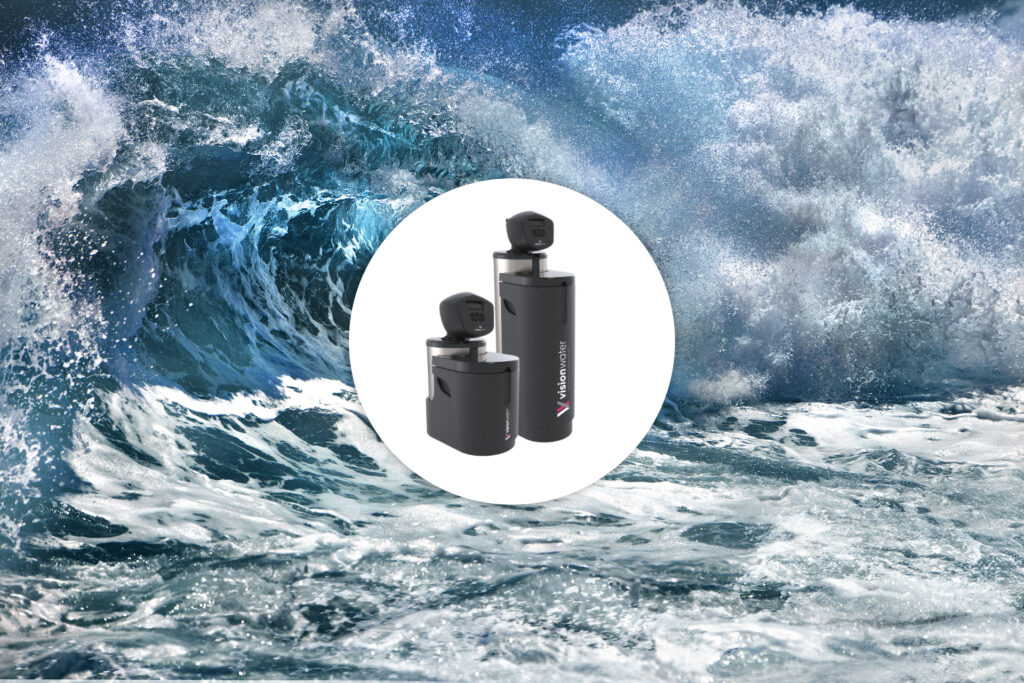
An example of this as it applies to hard water would be when positively charged hard water minerals, like calcium and magnesium, are put through the water softener, they interact with the negatively charged resin beads inside the tank. The resin media grabs those hardwater minerals out of the water like a magnet, leaving you with soft water.
Once the resin can no longer hold onto any more calcium and magnesium, sodium chloride (salt) from the brine tank is added to the media tank through regeneration.
By regenerating, the sodium chloride kicks off the calcium and magnesium minerals as it washes through the resin. Once this process is through and the remaining salt is washed away, the resin is now ready to take on more hardwater minerals. With those minerals removed, your soap no longer has to cling to their particles and can instead focus on washing your body and hair.
Benefits of bathing with soft water
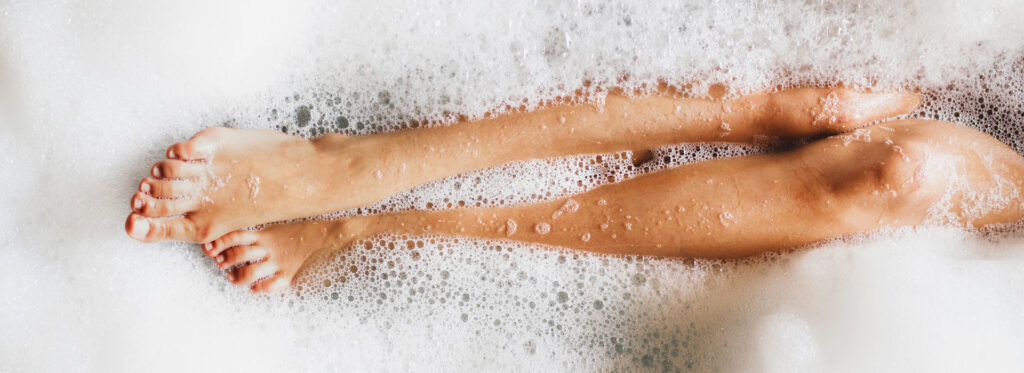
Use less soap
Hard water minerals like calcium and magnesium make us accustomed to using a certain amount of soap. With soft water, you don’t need as much soap as you use to. If you have recently installed a water softener, you will no longer have those hard water minerals effecting the effectiveness of your soap. Typically using a third to half the amount of soap you would normally use is an adequate amount with soft water. Using the same large amounts that you’re used to with hard water gives you that silky, slippery sensation. Most detergents, shampoos, and soaps will put their own coating on everything they touch, so if you’re using too much it may be hard to handle objects while they’re wet.
Use natural soap
Store bought soaps and shampoos can contain synthetic materials, perfumes, and water softening agents to counteract hard water problems. Water softening agents won’t be necessary with a new water softener. Making your own natural soap or buying a natural product can be a great solution to counteract excessive suds and slipperiness. Plus, you will know exactly what you are putting on your body.
Benefits to skin and hair
The biggest health benefit to bathing with soft water, is a difference with your hair and skin over time. The lack of hardness minerals will leave your skin moisturized and healthy and you will also notice your hair will rinse cleaner much easier than in the past. When using soft water, your skin won’t dry out because it allows your soaps and shampoos to rinse thoroughly off your skin and hair.

